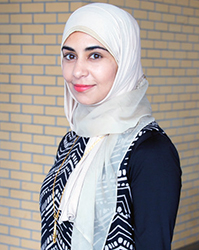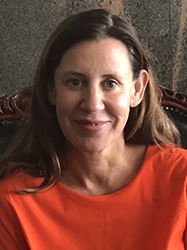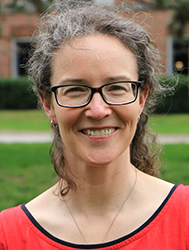Preparing students for the life beyond the classroom has always been a primary objective for York University’s Faculty of Liberal Arts & Professional Studies (LA&PS). For this reason, efforts have been made to utilize creative teaching strategies, collaborate with community partners, and create engaging ways for students to gain valuable experiences that will help them succeed in the future.
Adding several experience-based learning methods to the curriculum, LA&PS has established two funding streams for experiential education (EE) development, allowing course directors to enhance classes in a variety of ways. From covering the costs of guest speakers and conducting field trips, to organizing community-based learning projects and workshops, the EE development fund is available to support disciplines across the faculty – including humanities, social sciences and professional studies.
Several LA&PS instructors and course directors have submitted applications for experiential education funding in numerous areas: classroom-focused activities, community-focused assignments, placements and internships.

Aaida Mamuji
Disaster and Emergency Management Professor Aaida Mamuji’s request to implement a brand new virtual reality simulation into her course DEMS 2700 – Fundamentals of Emergency Management is one recent example that makes use of this support system.
With her application for funding now approved, Mamuji will be able to introduce a new iteration of the “Second Life” simulation program to her class in an upcoming term, allowing students to engage with disaster response in a variety of ways. The simulation-based program functions as primary tool for the course’s major assignment, where students are given an incredible opportunity to build on their knowledge with state-of-the-art technology illustrating a real-life emergency scenario. This exercise exemplifies EE by preparing students for these situations and equipping them with the practical know-how required to quickly adapt.
“When it comes to experiential education, LA&PS encourages professors to think outside of the box,” Mamuji said. “There’s tremendous value in regularly looking for new ways to help students put the theoretical components of their courses into practice. Supporting EE is one of the ways that the Faculty is preparing tomorrow’s leaders in so many different fields.”

Denielle Elliott
Social Science Professor Denielle Elliott echoes this view. Now two terms into instructing her field placement course, SOSC 4144 – Engaging Health in the Community, she recently heard about the funding opportunity, and quickly recognized an area where improvements could be made to the class.
The course is primarily structured around a 15-week, 150-hour placement at an organization in the community selected by each student. Through this long-term assignment, students collaborate with members of the aforementioned organization to brainstorm new ways to address health issues for various stakeholders. In the past, students have worked with hospitals, schools, senior homes, and other specialized health-focused organizations, yielding promising outcomes including: lasting connections, impactful health approaches and, in some cases, employment after graduation.
Elliott’s approved funding request will cover a special year-end event following the completion of the Winter 2020 term this April. The event will allow students to present their findings in an open setting, where their newfound community colleagues will also attend to reflect on the work accomplished over the semester. EE funding will help address the costs of food and drinks at the celebration, as well as presentation materials for students.

Maggie Quirt
This past term, another inaugural event in a different department was brought to life by one of the EE development funding streams, this time in HREQ 1010 – Introduction to Human Rights & Equity Studies. Instructing the course for the first time, Professor Maggie Quirt was ecstatic when she heard about the opportunity to generate financial support for a new learning initiative.
Hoping to help her students gain clarity early in the program, Quirt made use of the EE funding to host a careers night headlined by four special guest speakers, all working in different areas and each addressing human rights and equity issues on a regular basis. Helping to cover everything from parking passes and honoraria, to snacks and other light refreshments during the evening, Quirt’s funding was instrumental in setting the stage for HREQ students to learn from – and build connections with – these industry professionals. With a great turnout, the evening was a huge success met with positive reviews from students and visitors alike.
“What I liked about the Career Info Night [was that] the class got to hear what kinds of role/responsibilities we would have in an organization, and what kinds of issues would arise with equality, race, and privilege in the workplace,” HREQ student Samantha Haynes said. “[We also heard about] proactive training and implementing and/or revising policies to create a balanced and all-inclusive organization.”
Several other stories of the Fall/Winter 2019/20 EE funding streams are paving the way for similar goals, and results exist across the Faculty. LA&PS is very pleased with the proposals coming in from so many course instructors – and the hope is that academic leaders from all of the Faculty departments continue to make use of this financial support to enhance the experiential aspects of their programs going forward.
Applications for Summer 2020 grants are due March 1, 2020. Follow these links to learn more: https://laps.yorku.ca/experiential-education-development-fund-stream-1/ and https://laps.yorku.ca/experiential-education-development-fund-stream-2/.
Originally published in YFile.
